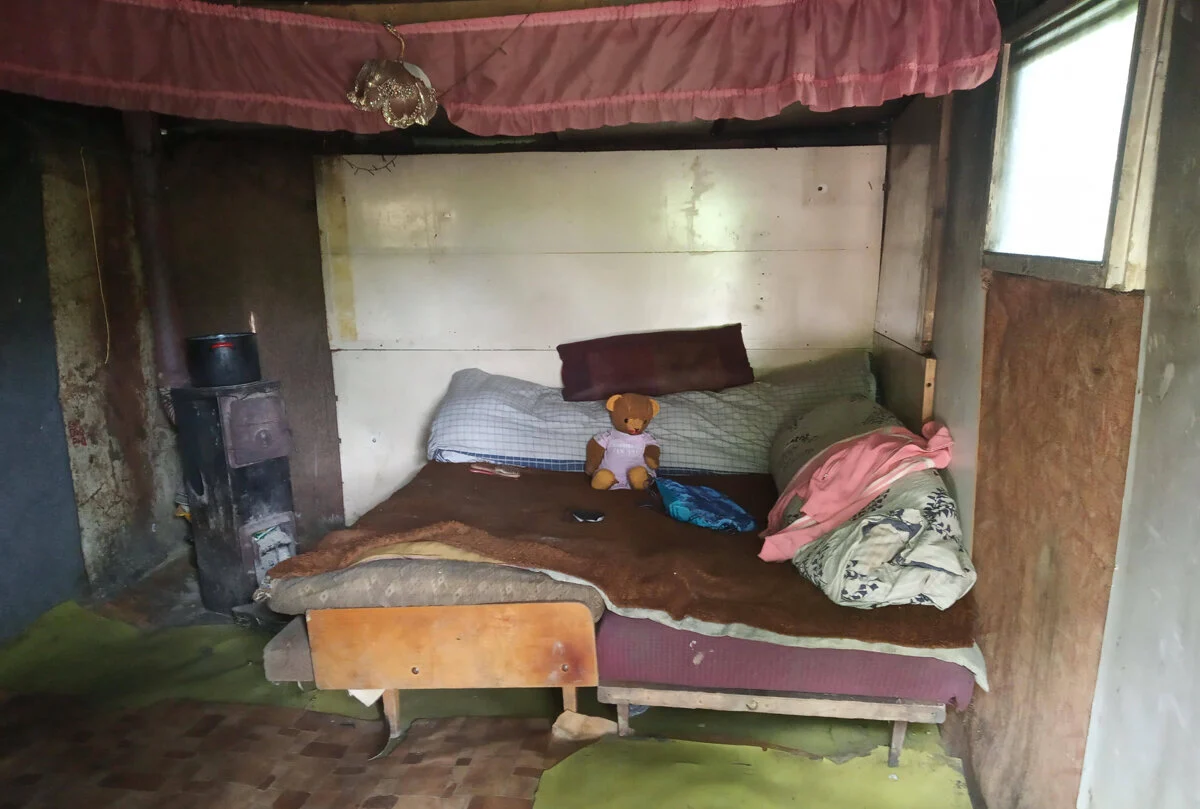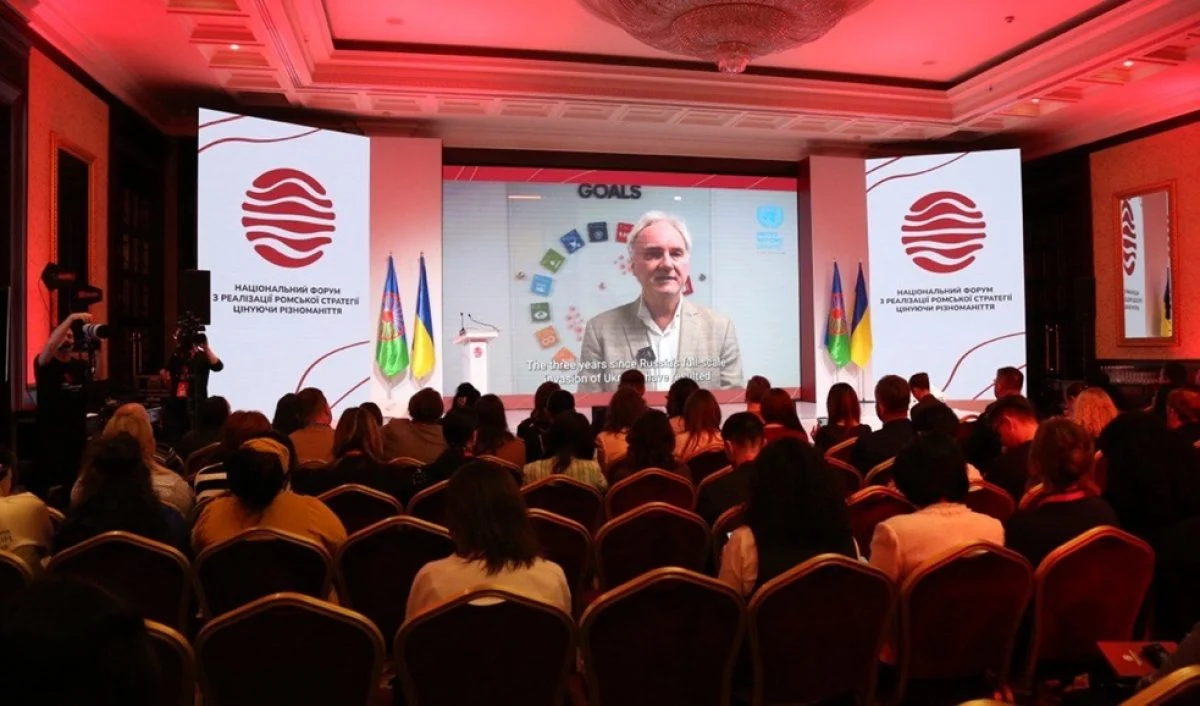Andrea Seibel (2013) of the newspaper “Die Welt” discusses the latest publication of the journalist Rolf Bauerdick. She describes him as routined Southeast Europe traveller, who is willing to lift the veil of political correctness and breach facts openly. This may be true to a certain degree, for example when she reports on Bauerdick’s criticism of Roma experts who speak about the situation of Rroma with no experience of reality or when he criticizes the role of victim, in which Rroma will often let themselves be pushed into. On the other hand Bauerdick alleged insolence towards the political correctness can also be called ignorance especially when Seibel presents pejorative representations as revelations and when externally assigned names such as “gypsies” are presented as endonyms:
Wherever they came, they wrecked the entire infrastructure. He experienced the family of the Romanian Gabor where men never worked and always found excuses as to why. They drank even more, beat their wives, because they were also drinking, after they had been beaten and got an infinite number of children who are not allowed to go to school. A narrow, dirty, rough, desperate world.
Such statements may reflect part of the reality, but they can be from the perspective of the politically correct, they are just stupid as they confirm the standard stereotypes in the minds of many people.
Seibels finds the strength of the book in a presentation that neither glorifies nor damns. Bauerdick presents the plurality of Roma ways of life, speaks about individuals, and not of “the Roma”, a presentation which must necessarily falls short. He also speaks of the much-quoted exclusion from mainstream society and from the own responsibility in face of the exploitation of the Rroma by Rroma. He sees this exploitation of Rroma by Rroma as an important factor. This factor is equally to be discussed as the tales of Rroma kings and criminally organized Rroma clans. Bauerdick notes:
The oppressive circumstance to which the criminal sociologist Szilveszter Poćzik points s often concealed. One in two adults and three out of four juvenile delinquents in Hungarian prisons are Roma. And that with a population of eight percent. That the inter-ethnic criminality is by far surpassed by the intra-ethnic violence is concealed. Most victims of the Roma are themselves Roma, beaten women, abused girls and exploited children. And the voices of those Gypsies who depart from this cartel of silence are themselves concealed. (Bauerdick 2013: 149)
Bauerdicks focus on field research and the social reality of his Interview partner is certainly laudable. The fact that the work of intellectuals is so vehemently discredited, testifies to an ignorance of epistemological and political force that can also be applied in the form of knowledge itself. Anyone whose exclusive concern are the visible ones tends to overlook the existence of social structures and power relations that exist beyond the visible Rroma slums. He also neglects the invisible Rroma, to which access is exceedingly more difficult to find than that of Roma in the slums on the outskirts of cities.
In his article for ‘die Welt” Bauerdick (2013) presents his view of the massive exploitation of Rroma by Rroma. He finds the desperate situation of many Rroma to be only mkarginally caused by exclusion, and more to be the result of internal exploitation. He notes:
With their stereotypical racism allegations, Roma politicians have for decades dominated all discussions, without any marked improvement of the situation of Gypsies. They hide the fact that the Roma are less exploited by the dominant part of the population than by the members of their own ethnic group. The Roma themselves suffer most from child abuse, women trafficking and prostitution, under usury, extortion and organised theft.
How uncritically he reports on Rroma kings and organized traffickers astonishes, especially as the existence and relevance have been repeatedly deemed questionable. In particular, the plausibility of the existence of an organized supervision and punishment structure, which would be necessary for such structures. Bauerdick’s thesis of the prevalence of self-exclusion among Rroma is also to be critically looked at. If all related, then exploitation is the result of exclusion, which turned into self-discrimination. To consider these themes separately and to consider them independent is a testimony of the lack of knowledge about the relationship of individuals and groups to society. Internal and external views can never be considered separately from each other, and are mutually dependent. Discrediting the exclusion of Rroma as an exaggeration simplifies the issue unnecessarily. This exclusion leads to apathy towards improving their own situation, but it is not a voluntarily act.
Sources:
- Bauerdick, Rolf (2013) Zigeuner: Begegnungen mit einem ungeliebten Volk. München: Deutsche Verlags-Anstalt.
- Bauerdick, Rolf (2013) Wer ist Schuld am Elend der Zigeuner? In: Die Welt vom 25.3.2013.
- Seibel, Andrea (2013) Das gar nicht lustige Zigeunerleben. In: Die Welt vom 19.3.2013.
- Nennt euch Nazis wenn Ihr uns Zigeuner nennt! Rolf Bauerdick. https://www.youtube.com/watch?v=mKZnXZ0QrYk







